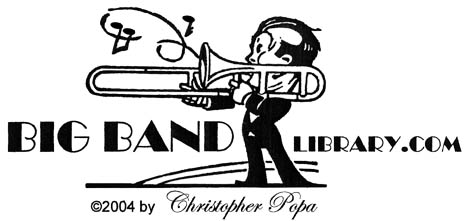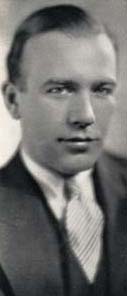
vital stats:
given name John Leonard
birth May 28, 1900, London, England
death Apr. 9, 1956, Hollywood, FL, poisoning, "apparent suicide"
heritage British
wife Tea, d.1948
daughter Doris, adopted, b.1938
son John
education London Conservatory of Music, ca.1909?; University of Iowa, ca.1917?
military service Navy, Great Lakes Training Station, 18 mos.
memberships ASCAP, 1928-
residences Cincinnati, OH; Iowa City, IL; Evanston, IL; Yonkers, NY; Hollywood, FL, 1949-
He came to the U.S. as a young boy.
Later, while attending the University of Iowa, he started to study medicine, but gave it up in favor of music.
As explained in the New York Times, "From John the name became Jack. Leonard became Little, and finally, because of his rather slight build, it was Little Jack Little."
He made personal appearances throughout the country, including at such swank New York City spots as the Hotel St. Moritz, the Lexington, the New Yorker, and the Ambassador. He also played in Atlantic City, Miami, Los Angeles, and Chicago.
Signed to Columbia beginning in 1934, among Little's most popular recordings for them were I'm in the Mood for Love, You Oughta Be in Pictures, and Lullaby of Broadway.
He also became known for co-writing several popular songs, including You're a Heavenly Thing, Jealous, Hold Me, and A Shanty in Old Shanty Town.
During World War II, he and stage and screen star Ray Bolger entertained for the USO at camps and posts in the Pacific war zone.
In later years, Little often performed at theaters (in an attempt to revive vaudeville), and he made many guest appearances on television.
With so many accomplishments, how could anyone have imagined that he would wind up taking his own life?
A widower and in the mid-1950s under treatment for hepatitis, he had been in what police called a "hideously depressed" state.
One morning in the spring of 1956, Little was found dead in bed by a maid. An autopsy revealed that traces of drugs believed to be chloral hydrate or barbiturates were found in the stomach.
He reportedly left a dozen farewell notes to various people. In one, he wrote, "I know I'm dying and I'm afraid of the suffering I'll have to go through." In another, addressed to "All My Friends," he said "Thanks for all the wonderful friendships and good times together. A little advice-take it easy, you'll last longer. Always, Jack."
sources:
"Jack Little and His Orchestra Coming to W-G-N: To Open at Palmer House Next Thursday,"
Chicago Daily Tribune, Sept. 27, 1936, p.SW4.
"Jack Little Dies; Radio Performer: Singer and Song Writer Had Popular Show in Thirties-
Star of Vaudeville," New York Times, Apr. 10, 1956, p.31.
"'Little Jack Little,' Band Leader, 55, Dies: Composer of 'Jealous' and Other Tunes,"
Chicago Daily Tribune, Apr. 10, 1956, p.B2.
"Little Jack Little Death Laid to Poisoning," Washington Post and Times Herald,
Apr. 11, 1956, p.35.
"Little, (Little) Jack," in ASCAP Biographical Dictionary, Fourth Edition (New York City:
Jacques Cattell Press, 1980), p.305.
Joel Whitburn, Pop Memories 1890-1954: The History of American Popular Music
(Menomonee Falls, WI: Record Research Inc., 1986), p.275.
I would like to expand this tribute, if possible, with a new interview of someone who was important to Little Jack Little's life and career. Are you an alumnus of his band, a member of his family, or a collector who is knowledgeable about his accomplishments? Please contact me via e-mail
return to "Biographical Sketches" directory
go to Big Band Library homepage
The big bands are back
in a new and exciting way!
LITTLE JACK LITTLE
"A CHEERFUL SONGBIRD"
by Music Librarian CHRISTOPHER POPA
August 2008
He had worked in vaudeville for about 16 years, before organizing a band in 1933. Called a "piano-playing wizard," audiences greatly enjoyed his singing, too.
As described in the New York Times, "he would introduce his songs in a soft, almost whispering voice, while executing a series of little arpeggios and other piano embellishments."
In fact, he was so popular that he sometimes earned as much as a thousand dollars in radio, in the early days.
"His radio approach was reminiscent of the arrival of a cheerful songbird," it was remarked in the Times.
